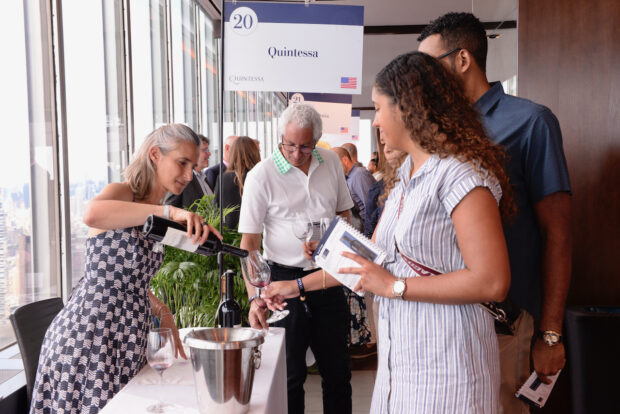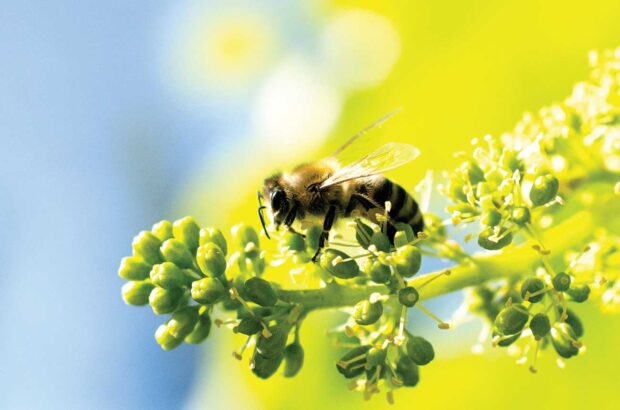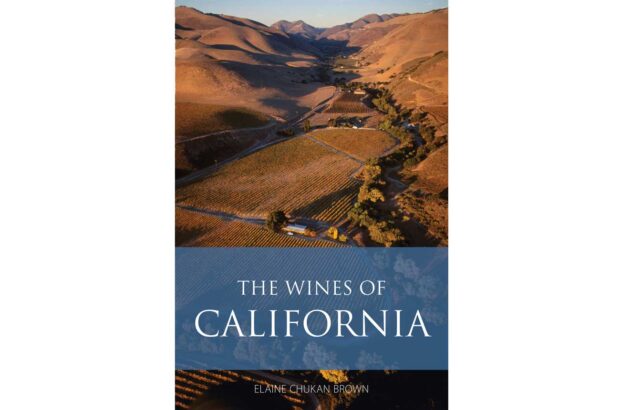RACHEL BRIDGE looks at what the wine world has to offer in terms of a career, and finds out how to get a foot in the door.
THIS October, an elite group of 10 wine professionals from around the world will attend a graduation ceremony in the grounds of Château Mouton Rothschild in Bordeaux, where they will receive their MBA degrees from one of the world’s most exclusive wine training programmes. For Euro28,000 (£17,610) each, the students have spent the past year at Bordeaux Business School attending courses in places as far afield as California, Australia and Chile, studying all aspects of wine management in order to take them to the next stage on the career ladder.
https://www.decanter.com/learn/wine-legend-chateau-mouton-rothschild-1945-374280/
Thankfully, few people need to go to such extreme lengths to secure a job in the wine industry. And the good news is that despite recent consolidation within the industry due to company mergers, there are still around half a million wine-related jobs in the UK. And many of them are open to people who are looking to turn a lifelong hobby into a second career.
Martyn Walshe, who runs a recruitment consultancy for a career in the wine trade, says the best way of proving to an employer you are serious about switching careers is to take a wine course run by WSET (Wine & Spirit Education Trust) in your spare time. He says: ‘When people tell me they want a job in the wine trade, my first question is, “what have they done to prepare themselves?” If they tell me they are currently taking a wine course then I take them seriously.’
Salary drop
Walshe warns that second career seekers may need to be prepared to accept a large drop in salary. ‘I get a lot of calls from people working in the City who are on salaries of £60,000 and £70,000 – they know their wine, but when I tell them the starting salary of an equivalent job in the wine trade is about £30,000 I never hear from them again. The transition from other industries into the wine sector is possible but it’s not easy.’
If you are prepared to accept a modest salary then the choice of jobs within the wine industry is immense, ranging from winemaker to sommelier, wine buyer to sales manager and fine wine auctioneer to professional wine taster.
Gareth Lawrence, course director at WSET, says that the best way to get a job in the industry is to adapt the skills you have already acquired in a different field. He advises: ‘People should fully research the industry and decide what area they want to enter into, and then look at their own background – if they have a microbiological background then quality assurance could be a good area, or if they have a track record in sales or marketing then that might be a good area to explore.’
Lawrence says that having a good commercial background can be a huge advantage: ‘People often think the wine industry is purely about tasting and going on foreign trips, but it’s important to remember that wine is a sales and service industry. Having a good commercial background and a proven knowledge and interest in wine is a great combination.’
One of the most common ways into the wine industry is via retail. Sarah-Jane Grant, who works in recruitment at wine and spirits retailer First Quench, which owns Threshers, Wine Rack, Victoria Wine and Bottoms Up off-licences, says: ‘There are a lot of people currently working in our head office who started out in one of our branches. We are looking for people with sales ability, really good customer service, and a real commitment to offer customers products they want to buy.’
Another option is to join the growing band of professional wine managers operating in the hospitality trade. James Brown, chief executive of the Academy of Food and Wine Service, the professional body for food, wine and bar staff, says: ‘A good wine waiter or manager is the same to wine as a good chef is to food. He isn’t just a pourer. He knows how to purchase wine, how to store it, and which grape varieties are in favour with customers. It is an amazing job because you can travel with it, you can run a business with it and it provides a tremendous amount of job satisfaction.’
A number of trainee schemes are also open to career changers. One of the most well established is run by Majestic Wine Warehouses, which takes on around 100 trainee managers a year with the aim of promoting them to store manager within two to three years. While the scheme is primarily aimed at graduates, there is no age limit and the company takes on several people seeking a career change each year.
Corinne Pilkington, Director of Human Resources at Majestic Wine Warehouses says: ‘We are happy to take on people wishing to change careers, and in the past we have had people from a really wide range of backgrounds and career histories. People need to be aware however that they must be prepared to muck in and do whatever needs doing, regardless of their previous status or job title.’
Hooked
Jane Carr MW, executive director of the Institute of Masters of Wine, says that once people have started started a career the wine industry they rarely leave, despite the low pay: ‘The industry is very demanding but it is also very sociable and retains some of the fun that has gone out of other industries. But you shouldn’t plan to work in the wine world with the aim of making lots of money – as the old saying goes, the best way to make a small fortune in wine is to start with a large one.’
The courses run by WSET are highly regarded by employers in this country and are often specified as job requirements for wine-related jobs. The courses are open to both amateurs and wine professionals, and held throughout the year in venues across the UK. Further details are available at: www.wset.co.uk. If you’re willing to invest more money in your career change, information about the wine MBA based at Bordeaux Business School can be found at www.winemba.com
Where to find a job
As well as contacting potential employers direct, job vacancies in the UK are advertised on www.ukwinejobs.com and in the classified section of www.harpers-wine.com – the online version of the industry’s weekly trade magazine Harper’s. If you are based overseas, look at www.worldwinejobs.com
COULD THIS BE YOU?
THE WINE CONSULTANT Salary: £35–50,000
Patricia Stefanowicz MW, 45, runs a wine consultancy in London, advising vineyards and wine importers and holding talks and tastings for wine clubs.
‘I was an architect designing hospitals for a large firm in the US when I was asked to manage a project to convert a barn into a winery in California. I fell in love with the idea of making wine. So I took a sabbatical and took a course in viticulture. When my husband and I moved to England I started working for a wine importer. Now I help small family-owned vineyards with their harvests and fermentation, teach wine studies at an agricultural college, and broke deals between importers and buyers. I love the variety and flexibility of my job. I’m very lucky.’
THE WINE BUYER Salary: £35,000+
Phil Reedman MW, 38, moved out to Adelaide, Australia four years ago to be a wine development manager for Tesco and is in charge of sourcing wine in Australia, New Zealand and North America.
‘Being based in Australia is a huge advantage because I hear about commercial opportunities first. I can nip down to the Barossa valley in an hour, taste something and decide to buy it. One of the best things is having the flexibility to buy both large parcels of own-label wine where you have an input into how they are made, and also small parcels of unknown wines. I spend around 20 weeks a year travelling around Australia visiting wine producers and usually taste 100 wines a week. No two days are ever the same.’
THE WINE RETAILER Salary: £50,000+
Fiona Barlow MW, 43, is the sales director of Bottle Green Ltd, a wine supplier based in Leeds.
‘I trained as a teacher but decided that dealing with bottles of wine would be more interesting than dealing with children. I joined Bottle Green four years ago and am responsible for all its sales around the world. I work with supermarket buyers to select wines and make blends and also to plan winemaking projects. I love the challenge of being able to work out a plan to satisfy customers’ needs. And I love seeing the bottles flying off the shelves and knowing they are there because of a germ of an idea I had. I travel abroad six to eight times a year.’
THE WINEMAKER Salary: £25–30,000
Martin Fowke, 40, is the winemaker at Three Choirs Vineyard in Gloucestershire. He also runs his own wine marketing company, Grape 2 Wine.
‘To a certain extent I fell into the job. I studied Agricultural Science at college and went to Three Choirs for work experience but then started to get interested. I am involved right from growing the grapes to the finished product and it is very satisfying to see the fruits of your labour. It is also a challenge, especially in England as you have plenty of problems to overcome. The downside is that the job can be quite solitary and you have to be prepared to work long hours during the harvest. And English wine is difficult to market because production is so small.’
THE SOMMELIER Salary: £18–20,000
James Doughty, 27, is assistant sommelier at Butlers Wharf Chop House in London.
‘Recommending a wine to someone is like being a detective, because some people don’t want to give too much away about how much they are willing to spend, particularly if they are with a group. So you have to piece together the information they give you. It can be very satisfying when you make a recommendation and at the end they thank you for a really nice evening. There aren’t many English sommeliers working in this country and customers are surprised when they discover I am one. But they are generally very supportive and it is nice to be breaking the mould.’
THE WINE EDUCATOR Salary: £20,000 approx
Kate Riall, 29, is director of the Northern Wine Academy in Harrogate, which she set up four years ago to provide training for the wine industry.
‘I used to work for a national distributor of wines and spirits but set the Academy up four years ago. I have 75 students a week and do most of the lecturing myself, as well as the accounts, marketing and paperwork. I also do wine-tasting events. I have to keep up to date with what’s going on in the wine world. I get a real thrill when people suddenly understand how to taste wine – one minute they are looking at you as if you are mad and suddenly someone will say, “I can smell raspberries”.’







